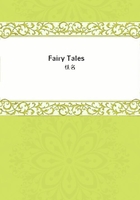
第185章
Christianity. The still living knight heard the sound; he could endure no more, he had neither peace nor rest. He caused himself to be lifted on his war-horse; the color came into his cheeks, and his strength returned to him again as he went forth to battle and to victory. The very same pasha who had yoked him to the plough, became his prisoner, and was dragged to a dungeon in the castle. But an hour had scarcely passed, when the knight stood before the captive pasha, and inquired, "What do you suppose awaiteth thee?"
"I know," replied the pasha; "retribution."
"Yes, the retribution of a Christian," replied the knight. "The teaching of Christ, the Teacher, commands us to forgive our enemies, to love our neighbors; for God is love. Depart in peace: return to thy home. I give thee back to thy loved ones. But in future be mild and humane to all who are in trouble."
Then the prisoner burst into tears, and exclaimed, "Oh how could I imagine such mercy and forgiveness! I expected pain and torment. It seemed to me so sure that I took poison, which I secretly carried about me; and in a few hours its effects will destroy me. I must die! Nothing can save me! But before I die, explain to me the teaching which is so full of love and mercy, so great and God-like. Oh, that
I may hear his teaching, and die a Christian!" And his prayer was granted.
This was the legend which the master read out of the old story-book. Every one in the house who was present listened, and shared the pleasure; but Sarah, the Jewish girl, sitting so still in a corner, felt her heart burn with excitement. Great tears came into her shining dark eyes; and with the same gentle piety with which she had once listened to the gospel while sitting on the form at school, she felt its grandeur now, and the tears rolled down her cheeks. Then the last words of her dying mother rose before her, "Let not my child become a Christian;" and with them sounded in her heart the words of the law, "Honor thy father and thy mother."
"I am not admitted among the Christians," she said; "they mock me as a Jewish girl; the neighbors' boys did so last Sunday when I stood looking in through the open church door at the candles burning on the altar, and listening to the singing. Ever since I sat on the school-bench I have felt the power of Christianity; a power which, like a sunbeam, streams into my heart, however closely I may close my eyes against it. But I will not grieve thee, my mother, in thy grave. I will not be unfaithful to my father's vow. I will not read the Bible of the Christian. I have the God of my fathers, and in Him I will trust."
And again years passed by. Sarah's master died, and his widow found herself in such reduced circumstances that she wished to dismiss her servant maid; but Sarah refused to leave the house, and she became a true support in time of trouble, and kept the household together by working till late at night, with her busy hands, to earn their daily bread. Not a relative came forward to assist them, and the widow was confined to a sick bed for months and grew weaker from day to day.
Sarah worked hard, but contrived to spare time to amuse her and watch by the sick bed. She was gentle and pious, an angel of blessing in that house of poverty.
"My Bible lies on the table yonder," said the sick woman one day to Sarah. "Read me something from it; the night appears so long, and my spirit thirsts to hear the word of God."
And Sarah bowed her head. She took the book, and folded her hand over the Bible of the Christians, and at last opened it, and read to the sick woman. Tears stood in her eyes as she read, and they shone with brightness, for in her heart it was light.
"Mother," she murmured, "thy child may not receive Christian baptism, nor be admitted into the congregation of Christian people.
Thou hast so willed it, and I will respect thy command. We are therefore still united here on earth; but in the next world there will be a higher union, even with God Himself, who leads and guides His people till death. He came down from heaven to earth to suffer for us, that we should bring forth the fruits of repentance. I understand it now. I know not how I learnt this truth, unless it is through the name of Christ." Yet she trembled as she pronounced the holy name. She struggled against these convictions of the truth of Christianity for some days, till one evening while watching her mistress she was suddenly taken very ill; her limbs tottered under her, and she sank fainting by the bedside of the sick woman.
"Poor Sarah," said the neighbors; "she is overcome with hard work and night watching." And then they carried her to the hospital for the sick poor. There she died; and they bore her to her resting-place in the earth, but not to the churchyard of the
Christians. There was no place for the Jewish girl; but they dug a grave for her outside the wall. And God's sun, which shines upon the graves of the churchyard of the Christians, also throws its beams on the grave of the Jewish maiden beyond the wall. And when the psalms of the Christians sound across the churchyard, their echo reaches her lonely resting-place; and she who sleeps there will be counted worthy at the resurrection, through the name of Christ the Lord, who said to His disciples, "John baptized you with water, but I will baptize you with the Holy Ghost."